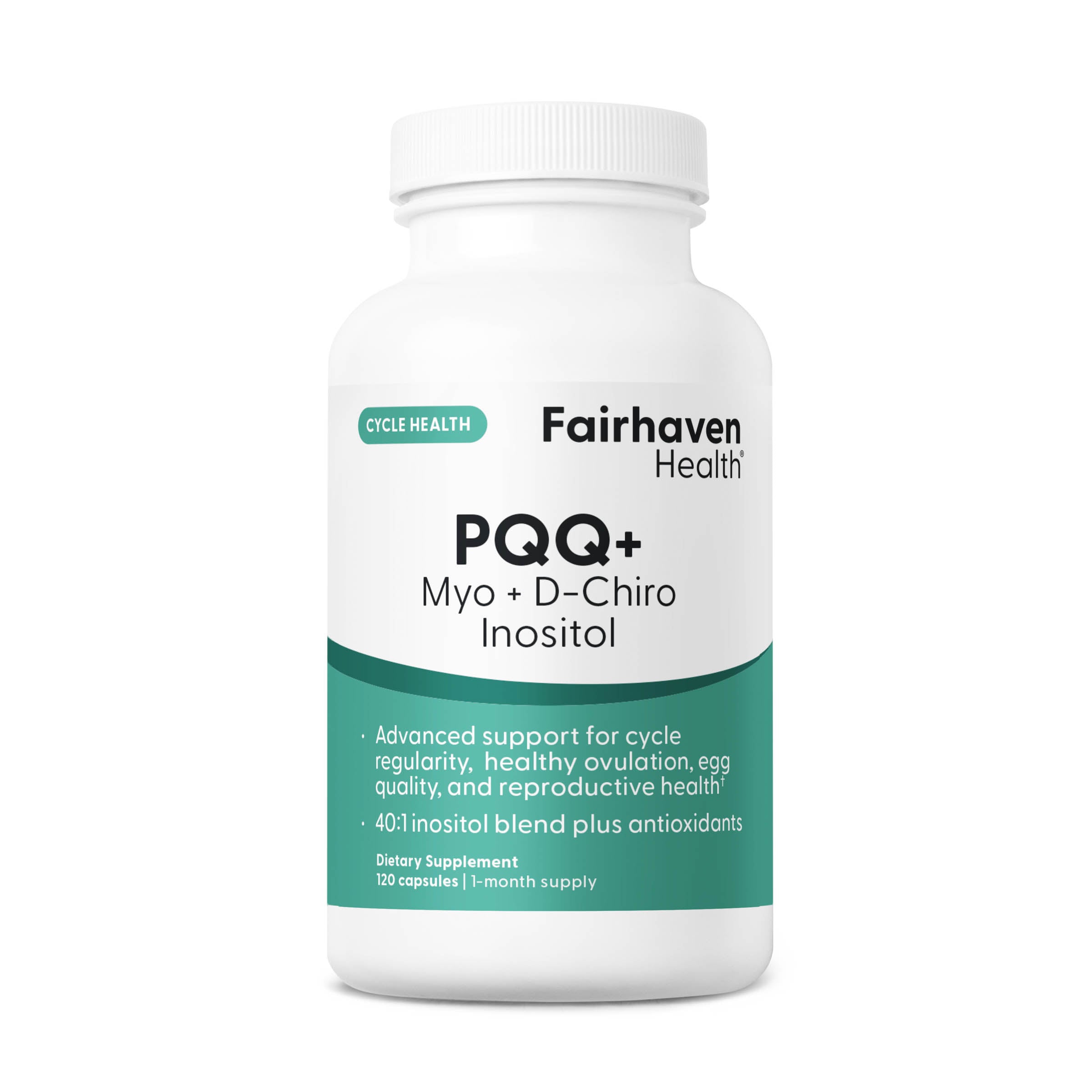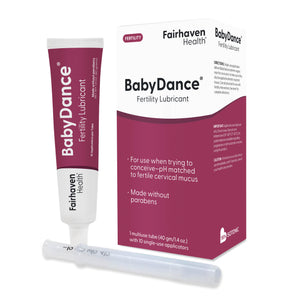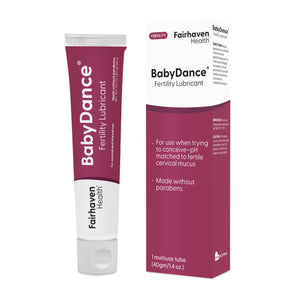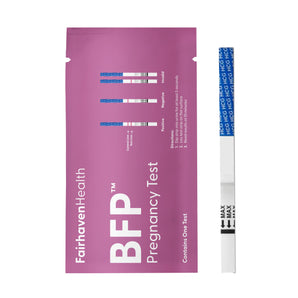By Chris D. Meletis, N.D.
Have you ever wondered if taking antidepressants can affect your chances of getting pregnant? A significant number of reproductive-aged women take antidepressants. According to the Centers for Disease Control (CDC), an estimated 20.9% of women aged 40 to 44 years are using these medications.1
Likewise, depression is common in men seeking fertility treatments. One study found that 49.1% of men undergoing IVF treatments were suffering from depression.2 Many of these men opt to undergo antidepressant therapy.
So what effect are antidepressants having on the ability to get pregnant? To answer those questions, let’s take a look at the research.
Do Antidepressants Affect Female Fertility?
Scientists have explored the idea that antidepressants may impact a woman’s ability to conceive, and here’s some of what they found. One group of researchers studied 957 women ages 30 to 44.3 Ninety-two of those women were on antidepressants while trying to conceive. The study authors concluded that “antidepressants may reduce the probability of a woman with a history of depression to conceive naturally. Future studies are needed to differentiate the extent to which this association is due to the antidepressant itself versus the underlying depression.”
In another study, among women not using an antidepressant, having major depression alone didn’t lead to poorer fertility outcomes (live birth, miscarriage), but rather was linked to a slightly increased likelihood of pregnancy.4 However, women who used antidepressants, especially non-SSRI antidepressants, were more likely to have a miscarriage in the first trimester of pregnancy. The reason why antidepressants may affect fertility in women involves a derivative of the hormone progesterone known as allopregnanolone.3 The three most commonly prescribed classes of antidepressants increase allopregnanolone, which is considered a neurosteroid and is produced in the brain. Animal research suggests that the increase in allopregnanolone levels caused by antidepressants can lead to an imbalance in the hypothalamic-pituitary-ovarian (HPO) axis.
Do Antidepressants Affect Male Fertility?
For men, most fertility research is on the effects of SSRIs rather than other antidepressants. During cell culture, animal, and human studies, SSRIs decreased semen quality.5
Several studies have zoomed in on the effects of the SSRI drug Fluoxetine on male fertility. These studies have noted that the drug is associated with decreased sperm concentration and motility.5 Studies of other SSRIs have produced similar results.5 However, there’s not as much good research on other types of antidepressants such as serotonin-norepinephrine reuptake inhibitors, norepinephrine-dopamine reuptake inhibitors, tricyclic antidepressants, monoamine oxidase inhibitors, and atypical antidepressants.5
Cell culture research found that antidepressants and antipsychotic drugs had toxic effects on cells involved in spermatogenesis.6 These effects included increased production of reactive oxygen species and impaired mitochondrial function.
One More Way In Which Antidepressants May Affect Fertility
Antidepressants aren’t exactly great for the libido. A well-known side effect of these medications is reduced sex drive, which is a problem for couples trying to conceive. If you’re having less sex, it could affect your ability to get pregnant.
The Bottom Line on Antidepressants and Fertility
If you’re taking antidepressants while trying to conceive and you are concerned about any potential impacts on your fertility, talk with your healthcare provider or professional therapist about your options. Your doctor may suggest some alternatives. It’s never a good idea to withdraw from these medications abruptly, so be sure to reduce the dosage only under the guidance of a healthcare professional.
Dr. Chris Meletis
 Dr. Chris Meletis is an educator, international author and lecturer. His personal mission is “Changing World’s Health One Person at a Time.” Dr Meletis has authored 18 books and over 200 national scientific articles in journals including Natural Health, Alternative and Complementary Therapies, Townsend Letter for Doctors and Patients, Life Extension, Natural Pharmacy, and PubMed.gov articles.
Dr. Chris Meletis is an educator, international author and lecturer. His personal mission is “Changing World’s Health One Person at a Time.” Dr Meletis has authored 18 books and over 200 national scientific articles in journals including Natural Health, Alternative and Complementary Therapies, Townsend Letter for Doctors and Patients, Life Extension, Natural Pharmacy, and PubMed.gov articles.
Dr. Meletis served as Dean of Naturopathic Medicine and Chief Medical Officer for 7 years for the National College of Naturopathic Medicine (now the National University of Natural Medicine). He was awarded the 2003 Physician of the Year by the American Association of Naturopathic Physician of the Year by the American Association of Naturopathic Physicians. He has a deep passion for helping the underprivileged and spearheaded the creation of 16 free natural medicine healthcare clinics in the Portland metropolitan area of Oregon.
References:
- Dawson AL, Ailes EC, Gilboa SM, et al. Antidepressant Prescription Claims Among Reproductive-Aged Women With Private Employer-Sponsored Insurance - United States 2008-2013. MMWR Morb Mortal Wkly Rep. 2016;65(3):41-46.
- Chen D, Zhang JP, Jiang L, et al. Factors that influence in vitro fertilization treatment outcomes of Chinese men: A cross-sectional study. Appl Nurs Res. 2016;32:222-226.
- Casilla-Lennon MM, Meltzer-Brody S, Steiner AZ. The effect of antidepressants on fertility. Am J Obstet Gynecol. 2016;215(3):314.e311-315.
- Evans-Hoeker EA, Eisenberg E, Diamond MP, et al. Major depression, antidepressant use, and male and female fertility. Fertil Steril. 2018;109(5):879-887.
- Beeder LA, Samplaski MK. Effect of antidepressant medications on semen parameters and male fertility. Int J Urol. 2020;27(1):39-46.
- Solek P, Mytych J, Tabecka-Lonczynska A, Sowa-Kucma M, Koziorowski M. Toxic effect of antidepressants on male reproductive system cells: evaluation of possible fertility reduction mechanism. J Physiol Pharmacol. 2021;72(3).







